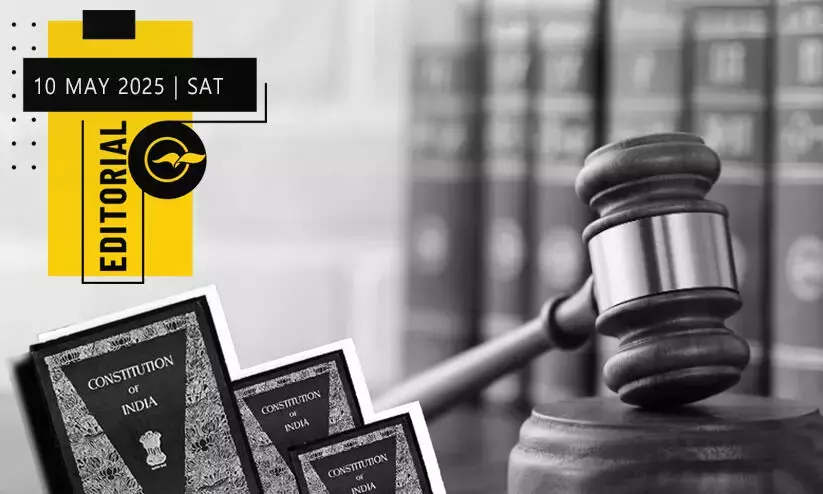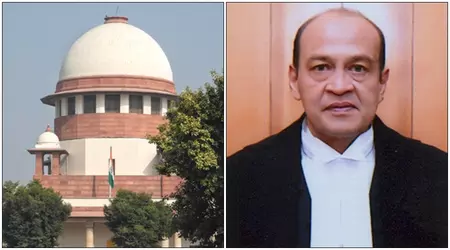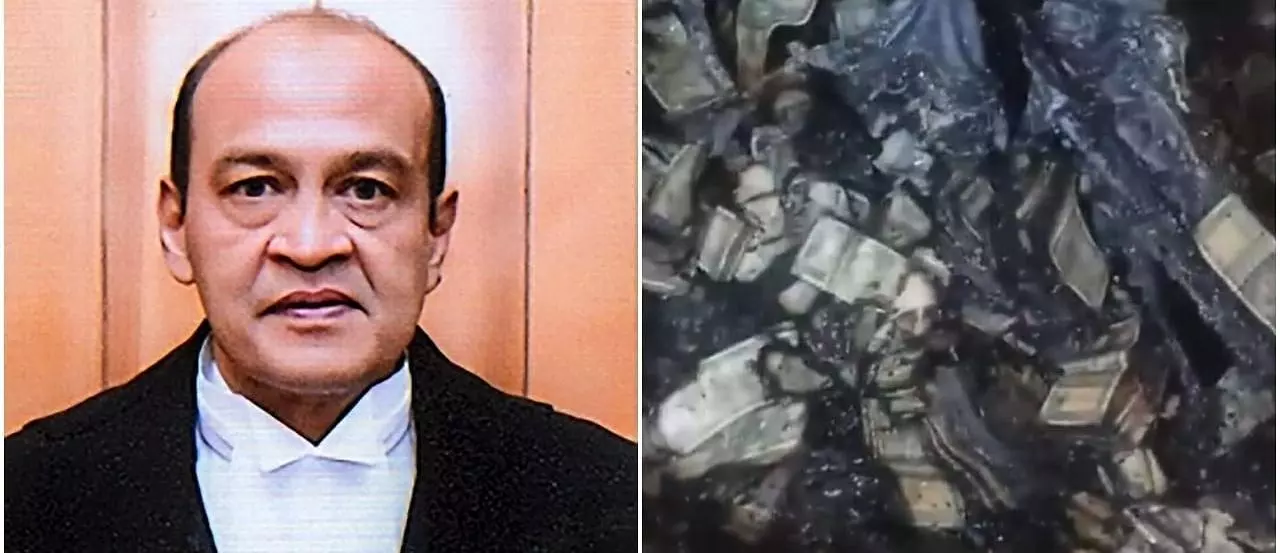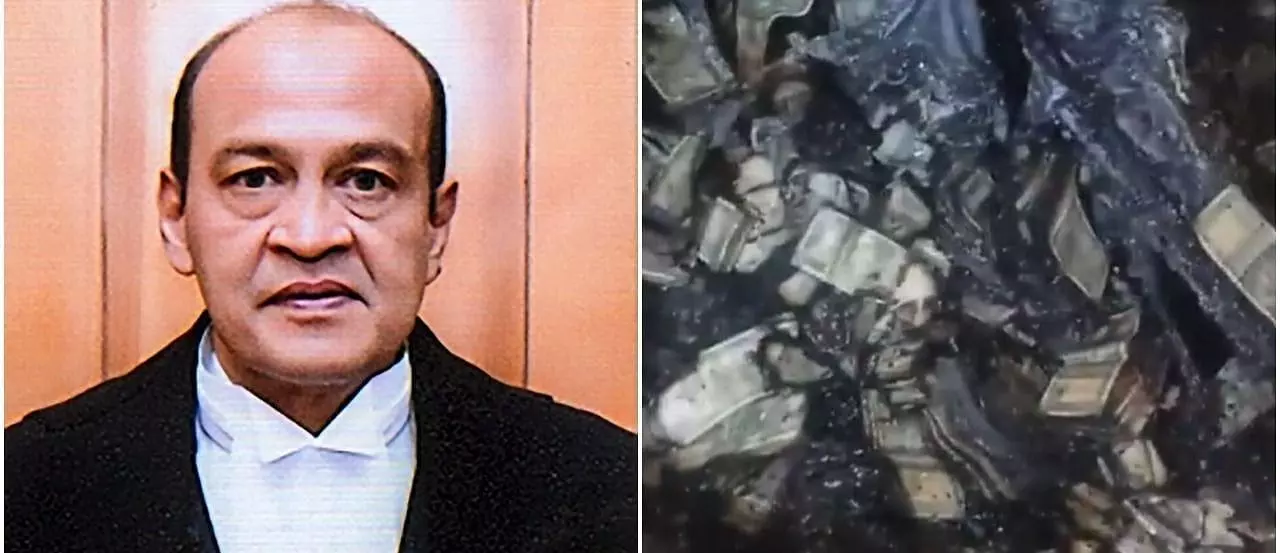
Question of upholding integrity of the judiciary
text_fieldsOn the night of March 14, a fire broke out in the outhouse of Delhi High Court judge Justice Yashwant Varma’s official residence in Delhi. When firefighters and house staff arrived to extinguish the flames, they were shocked to discover bundles of currency notes stacked or half burned among the debris. The incident quickly became news, prompting an investigation. Eventually, the Supreme Court intervened, appointing a three-member commission of judges from different high courts to conduct a detailed inquiry. As an interim measure, Justice Varma was transferred from the Delhi High Court to the Allahabad High Court and was assigned no judicial duties. Last Sunday, the commission submitted its report to the Chief Justice, including Justice Varma’s response. With only three days left before Chief Justice Sanjiv Khanna’s retirement, he forwarded the report to the President and Prime Minister, recommending impeachment proceedings against Justice Varma. If the president approves the recommendation, then it will be the turn of the Parliament to pass an impeachment motion which requires a special majority consisting of both a simple majority of all members and approval of at least two-thirds of members present and voting in the session. Such proceedings are extremely rare, with only five judges having faced impeachment before.
The key point to understand is that the investigation team did not take at face value the explanations provided by Justice Verma regarding how such a large amount of money ended up at the residence of a High Court judge. The Delhi High Court Chief Justice himself examined the circumstances and observed that on the morning following the incident, all the burnt remnants had already been cleared away and that no one had entered the premises in the meantime, according to the testimony of the security guard. The Judicial Committee reviewed witness statements, including those from firefighters, and based on their findings and recommendation, the Chief Justice proceeded with further action.
The judiciary serves as both the shield of the rule of law and the final refuge for citizens seeking justice. It stands as a barrier against state injustices and excesses in addition to being the guardian of the Constitution. The higher courts normally bear an even greater responsibility for constitutional protection than the lower courts, as they are expected to uphold credibility and excellence at a superior level. However, Beyond judges' personal interpretations and differing legal perspectives influencing rulings, if it comes to a point where judges succumb to material temptations and fall prey to vested interests, then public trust in the judiciary will end there. This is precisely what happened in Justice Yashwant Varma’s case. His actions did not merely tarnish his own reputation—they undermined the integrity of the judicial system itself. That is apparently why the Chief Justice ultimately recommended impeachment as the final course of action.
To be read with this is the recent disclosure of assets by 21 Supreme Court judges. This is a positive step toward enhancing transparency and credibility of the judiciary. The move is expected to strengthen public trust in the courts. True, the disclosed information is available to citizens under the Right to Information (RTI) Act, as judges are considered public servants under the law and therefore, their financial details can be accessed by anyone upon request. However, the fact that judges voluntarily chose to disclose their assets is noteworthy. Previously, in 2009, the Supreme Court had proposed that judges should declare their assets, but since it was optional, it did not have a significant impact. The portal created for this purpose has reportedly remained inactive until now. Among the 33 Supreme Court judges and over 1000 High Court judges of the country, even a single instance of misconduct by one judge can bring irreparable damage to the credibility of the judiciary. There is no doubt that such an event can tarnish the institution. Justice Yashwant Varma’s case is an isolated incident, but its impact is substantial. To restore public trust, urgent corrective measures become imperative. The Chief Justice and the Supreme Court acted decisively, fulfilling their constitutional duty. When the credibility and reputation of the judiciary are compromised, the Supreme Court’s urgent intervention becomes integral. What remains to be seen is whether the President and subsequently Parliament will endorse the Supreme Court’s recommendation and take decisive action.





















